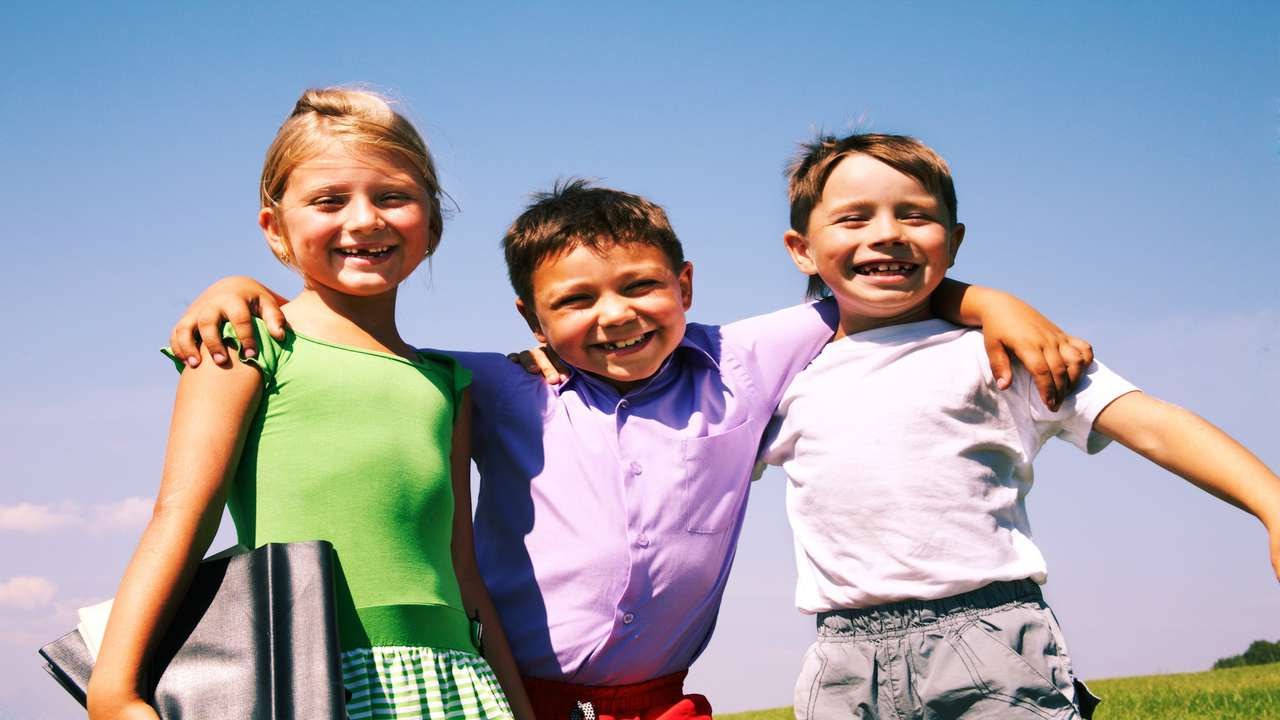How to Help Your Child Make Friends | Child Anxiety
Full Playlist: https://www.youtube.com/playlist?list=PLLALQuK1NDriaMYHHl7sulhOozHdtTdHi
–
–
No child should suffer depression and anxiety without help, seek professional help for you and your child and here’s some resources for educating yourself along the way:
Freeing Your Child from Negative Thinking: http://amzn.to/1jOAGeu
How To Get Unstuck From The Negative Muck: http://amzn.to/1Pj1b7O
Depression and Your Child: A Guide for Parents and Caregivers: http://amzn.to/1LiG97G
What to Do When You’re Scared and Worried: A Guide for Kids: http://amzn.to/1jOAOuH
What to Do When You Worry Too Much: A Kid’s Guide to Overcoming Anxiety: http://amzn.to/1JThS2M
Watch more How to Deal with Child Anxiety & Depression videos: http://www.howcast.com/videos/517451-How-to-Help-Your-Child-Make-Friends-Child-Anxiety
I’m here to talk to you about how to help your child make friends. Now, friendship actually changes for children through the ages. When children are very young, I think of infants, toddlers, it’s really about having fun. Helping them make friends is really about teaching them appropriate social skills for that age. Usually, there’s a lot of parent involvement in terms of the sharing and managing behaviors and maybe the grabbing toys or the hitting that starts to happen. It’s really about getting them involved with peers on just a very simple kind of level.
But as kids get a little bit older, in terms of pre-care or kindergarten, friendship start to take on a little bit more meaning. It’s about having fun but it’s also about making those connections. Certainly, as kids move through the elementary school years, there’s really this sense of I like someone; those people don’t like me; or she’s really nice; or we have a lot in common. By the time you get to those six and seven year olds and even eight year olds, you see a lot of already … that peer group situation and you may need to help your child with navigating and understanding how to figure out what’s the best way to make a friend, or even keep a friend.
When you’re trying to help a child make friends, I think you want to teach them the basics; the please, the thank you, going up to somebody, and maybe role playing, “Hi, I’m Robin and do you come to this playground? Do you want to go and play soccer with me?” Whatever it is, help them and watch them on the playground. Watch them when they’re at a party with their friends, in a birthday party and help them get more comfortable with the kids.
Now, if you have a shy child, you definitely want to make sure to put them in situations where they can practice; maybe with a few people as opposed to a big group of people. You have to be careful with a shy child that you don’t reinforce that shyness. You want to give them some, maybe smaller experiences, one on one play dates, so they can get comfortable with one person. Then, maybe when they go to a party or an event where that person is, they can become part of the group in a much easier kind of way.
The other thing that’s a little tricky with kids even at those young school age; first, second, third grade is teaching them about how to manage when people aren’t so friendly; making sure they have a lot of confidence about themselves, that they come and talk to you about their friends, that you know who their friends are, and you help them when there’s a problem with their friends.
When you get to the teenage years, those kids … it’s not necessarily fitting in with those different groups as they are in middle school. But when the teenagers are trying to have friends, it’s about what group fits for them. I mean a very different kind of way, in terms of their interest; they start to develop an identity. Again, you want to be as involved and aware of their friends as when they were little because you still have much more influence than you think with a teenager. Talk about their friends. Talk about their struggles. Talk about maybe trying to be a friend with somebody who is trying to get them to do something that you don’t approve of and helping them with those situations. Because friendship skills are lifelong skills.
Just because you have friends today doesn’t mean you’re going to want and meet new ones tomorrow. So, figuring out how to do that will help you forever.



![[ID: M8FJSEpCu-8] Youtube Automatic](https://okumasaati.net/wp-content/uploads/2020/10/id-m8fjsepcu-8-youtube-automatic-360x203.jpg)
![[ID: QGPYjtQ3SfQ] Youtube Automatic](https://okumasaati.net/wp-content/uploads/2020/10/id-qgpyjtq3sfq-youtube-automatic-360x203.jpg)
![[ID: hgk18VY8cqg] Youtube Automatic](https://okumasaati.net/wp-content/uploads/2020/10/id-hgk18vy8cqg-youtube-automatic-360x203.jpg)
![[ID: m8iTqoHNRn4] Youtube Automatic](https://okumasaati.net/wp-content/uploads/2020/10/id-m8itqohnrn4-youtube-automatic-360x203.jpg)
![Private: [ID: yRQtG_k0V04] Youtube Automatic](https://okumasaati.net/wp-content/uploads/2020/10/private-id-yrqtgk0v04-youtube-au-360x203.jpg)
![[ID: 591zwrqsDVM] Youtube Automatic](https://okumasaati.net/wp-content/uploads/2020/10/id-591zwrqsdvm-youtube-automatic-360x203.jpg)